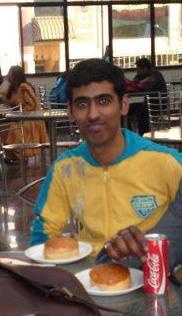Security Industry Plagiarism
 According to dictionary.com, "Plagiarism" is
"the unauthorized use or close imitation of the language and thoughts of another author and the representation of them as one's own original work."
This appears to be a simple explanation of the act of plagiarizing, but it is not.
According to the U.S. Copyright Office,
"there is no specific number of words, lines, or notes that may safely be taken without permission.
Acknowledging the source of the copyrighted material does not substitute for obtaining permission."
Title 17 > Chapter 1 > § 107 of the U.S. Code covers
Limitations on exclusive rights: Fair use but does not outline a specific amount of text
or occurrences that define plagiarism. 17 U.S.C. § 105
establishes that U.S. government works are not available for copyright protection. However, this does not
exempt them from being properly cited in a written work.
According to dictionary.com, "Plagiarism" is
"the unauthorized use or close imitation of the language and thoughts of another author and the representation of them as one's own original work."
This appears to be a simple explanation of the act of plagiarizing, but it is not.
According to the U.S. Copyright Office,
"there is no specific number of words, lines, or notes that may safely be taken without permission.
Acknowledging the source of the copyrighted material does not substitute for obtaining permission."
Title 17 > Chapter 1 > § 107 of the U.S. Code covers
Limitations on exclusive rights: Fair use but does not outline a specific amount of text
or occurrences that define plagiarism. 17 U.S.C. § 105
establishes that U.S. government works are not available for copyright protection. However, this does not
exempt them from being properly cited in a written work.
Despite the law not giving a clear line between fair use and plagiarism, most professionals
understand the nature of the law and adhere to a level of moral behavior that avoids plagiarism.
By quoting small portions of text, properly citing the original source and ensuring their
work is done in good faith, it is generally easy to avoid plagiarizing. The NYU Journalism
Handbook for Students contains a section on Research Materials & Copyright that gives a
good list of real world examples of what constitutes plagiarism. Plagiarism.org
offers a summary answer to the question
What is Plagiarism? The law offices of Morse Barnes-Brown Pendleton published
an article in Writer's Digest in 2001 explaining A Writers' Guide to Fair Use. These
resources should give a good guideline of what is acceptable, and what is not.
Attrition.org uses the resources above to guide us in determining if a piece of work
contains plagiarized material. The
types of plagiarism as outlined by Plagiarism.org serve as a starting point.
Instances where a sentence or two are copied every so often are lazy, but not necessarily
plagiarism. We consider the amount of copied text versus the amount of original work
and weigh it against the expectation of original work. When we find material that has
a significant percentage of copied material, or demonstrates signs that the author did
not present original material (e.g., building large blocks of text by copying single
lines from multiple sources), we consider it to be plagiarized. For more
on our methodology of detecting plagiarism, we have
written up some details.
If any part of our analysis is incorrect, we encourage the author to contact us and
explain themselves, provide proof they authored the material, or offer proof that they obtained the
rights to the material used.
Security Industry Book Plagiarists
 |
Gregory D. Evans
Books Written: 8
Books Reviewed Containing Plagiarism: 5
Books Reviewed Without Plagiarism: 0 |
|
|
 |
Ankit Fadia
Books Written: 14
Books Reviewed Containing Plagiarism: 7
Books Reviewed Without Plagiarism: 0 |
|
| ~ 50% |
| 32% |
| n/a |
| ~ 50% |
| n/a |
| n/a |
| n/a |
|
 |
Dr. Ali Jahangiri
Books Written: 3
Books Reviewed Containing Plagiarism: 3
|
|
|
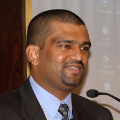 |
Manu Zacharia
Books Written: 2
Books Reviewed Containing Plagiarism: 2 |
|
|
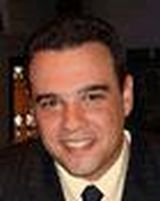 |
Dustin L. Fritz
Books Contributed To: 1
Books Reviewed Containing Plagiarism: 1 |
|
|
 |
Mourad Ben Lakhoua
Books Contributed To: 1
Books Reviewed Containing Plagiarism: 1
|
|
|
 |
Vaidehi Sachin / Cattechie
(Tech) Books Written: 1
Books Reviewed Containing Plagiarism: 1
|
|
|
 |
Michael H. Goldner
Books Written: 10+ ?
Books Reviewed Containing Plagiarism: 1
Books Reviewed Without Plagiarism: 0 |
|
|
 |
Abhishek Singh (Editor), Baibhav Singh, Hirosh Joseph
Books Written: 1
Books Reviewed Containing Plagiarism: 1
|
|
|
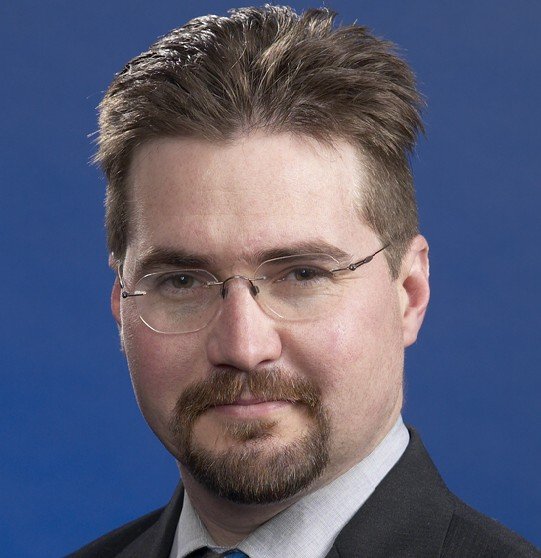 |
Craig S. Wright
Books Written: 1
Books Contributed to: 3
Books Reviewed Containing Plagiarism: 1
Books Reviewed Without Plagiarism: 0 |
|
|
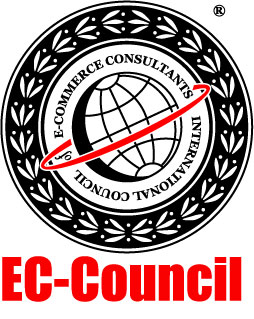 |
EC Council / Michael Goldner |
|
|
 |
Rahul Tyagi
Books Written: 1
Books Reviewed Containing Plagiarism: 1 |
|
|
 |
Prateek Shukla |
|
|
|
Navneet Mehra |
|
|
|
Jaya Bhattacharjee |
|
|
|
Nishant Das Patnaik |
|
|
[1] Evans claims he "wrote 8 books on computer security and identity theft". We can only
find six of his books, one of which is not a technical book ('Memoirs of a Hi-Tech Hustler'). If Evans counts "contributions by", a seventh book
may be "How to Think Big" by Dante Lee, but does not cover security or identity theft. Evans' website
shows thumbnails of "Fighting Hi-tech Crime" and "Hi-tech Identity Theft", but we cannot find them for purchase on his site or any other.
Security Industry Online Plagiarists
 |
Mike AtLee |
"Director, ... and education solutions practice", but apparently his education did not teach him about plagiarism. |
 |
Bennet Bayer |
"Results-based Sr. Executive driving rapid growth ..." and serial plagiarizer stripping credit for his personal blog and Avnet corporate blog advertising. |
 |
Conbis |
A new India-based security company with no services, dummy text, and a blog full of plagiarized content. |
 |
David Virgil Dafinoiu
NorAm Intelligence
NorAm Capital Holdings Corporation
NorAm Media Group
U.S. - Romanian Business Council
Global Intelligence Center
Cyber Intelligence Center
ALL-Q-TELL |
Serial plagiarizer, taking news articles and op-ed pieces from others, stripping credit
and putting his name to them. |
 |
EC-Council |
Course material, web site blog, and books branded under their name (written via Cengage) all contain
plagiarized content. |
 |
eFortresses |
This compliance auditing shop uses plagiarized material to advertise their services. |
 |
FORESEC Academy |
Their entire security training portfolio is a blatant rip from SANS courses. |
 |
Forus-P |
Netherlands-based Forus-P copied most of an article and used it as part of their advertising and marketing. |
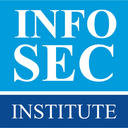 |
Infosec Institute |
Plagiarism of course material from Corelan.be and dozens of other sources. |
 |
Kenneth Magee |
Kenneth Magee, staff at InfoSec Institute, plagiarized for some of his articles. |
 |
R. Manoj |
R. Manoj, assistant editor at Fanatic Media, cuts up other articles to piece together his own. |
 |
Mourad Ben Lakhoua |
Repeated plagiarism in blog articles on sectechno.com |
 |
Steven Lentz |
Repeated copyright violations and taking content while stripping attribution. |
 |
Jo Stewart-Rattray |
International Vice President at ISACA, plagiarized portions of an article for (IN)SECURE Magazine. |
 |
The Hacker News / THN
thehackernews.com |
Security news aggregation site profits off plagiarized content. |
 |
Vaidehi Sachin / Cattechie |
Plagiarized or violated copyright for her magazine Hacker5 and several of her blogs. |
 |
Daniel Weis |
Time-bending 'ethical' hacker, plagiarizes content for his blog. |
 |
L. Yagami / x-blackerz.org |
What appears to be a small hacker site, is really a place for plagiarized content. |
 |
BRK / Dis9 Team |
Yet another hacker site trying to appear as if they have original content. |
 |
Rizky Ariestiyansyah / Liyan Oz (IBT) |
In copying the Indonesian BackTrack site disclaimer from another source, Ariestiyansyah forgot to remove all traces of who he stole from. |
 |
Vasu Gautam |
Nondescript blogger who plagiarizes content. |
 |
Alok Anibha |
The head of engineering services at a software testing companies "writes" articles about security to promote his company. |
 |
Alexandru Negrila |
Co-owner of two software companies, he copied an entire paper and potentially submitted it
to his college. |
 |
Voice of Grey Hat (VoGH) |
Another 'hacker' run aggregation site that plagiarizes material instead of writing their own. |
 |
Ethical Hacking Guide |
An "ethical" hacking site that plagiarizes, and possibly profits of it. |
 |
iSOC India |
The entire corporate site is plagiarized from other security companies. |
 |
Balaji N |
Balaji N, member of the Threat Research Labs at Comodo Cybersecurity plagiarizes
content for his blogs on his GBHackers blog. |
Copyright 2011-2012 by Attrition.org. Permission is granted to quote, reprint or redistribute provided the
text is not altered, and appropriate credit is given.
 According to dictionary.com, "Plagiarism" is
"the unauthorized use or close imitation of the language and thoughts of another author and the representation of them as one's own original work."
This appears to be a simple explanation of the act of plagiarizing, but it is not.
According to the U.S. Copyright Office,
"there is no specific number of words, lines, or notes that may safely be taken without permission.
Acknowledging the source of the copyrighted material does not substitute for obtaining permission."
Title 17 > Chapter 1 > § 107 of the U.S. Code covers
Limitations on exclusive rights: Fair use but does not outline a specific amount of text
or occurrences that define plagiarism. 17 U.S.C. § 105
establishes that U.S. government works are not available for copyright protection. However, this does not
exempt them from being properly cited in a written work.
According to dictionary.com, "Plagiarism" is
"the unauthorized use or close imitation of the language and thoughts of another author and the representation of them as one's own original work."
This appears to be a simple explanation of the act of plagiarizing, but it is not.
According to the U.S. Copyright Office,
"there is no specific number of words, lines, or notes that may safely be taken without permission.
Acknowledging the source of the copyrighted material does not substitute for obtaining permission."
Title 17 > Chapter 1 > § 107 of the U.S. Code covers
Limitations on exclusive rights: Fair use but does not outline a specific amount of text
or occurrences that define plagiarism. 17 U.S.C. § 105
establishes that U.S. government works are not available for copyright protection. However, this does not
exempt them from being properly cited in a written work.












